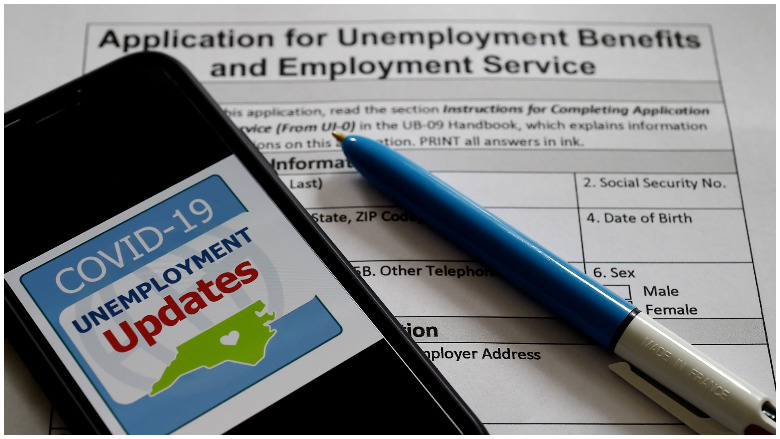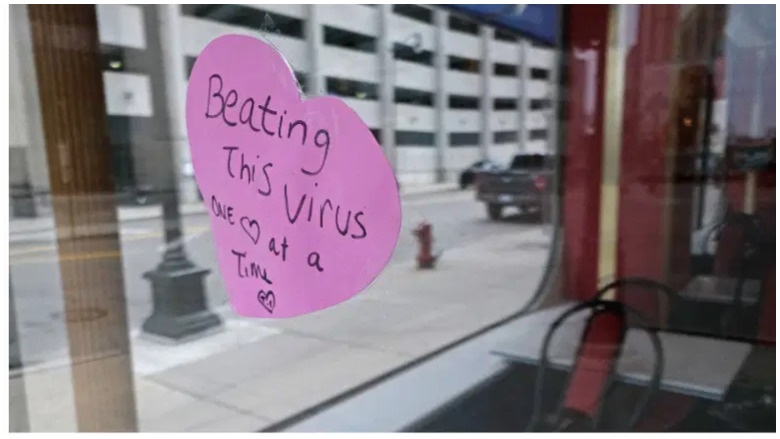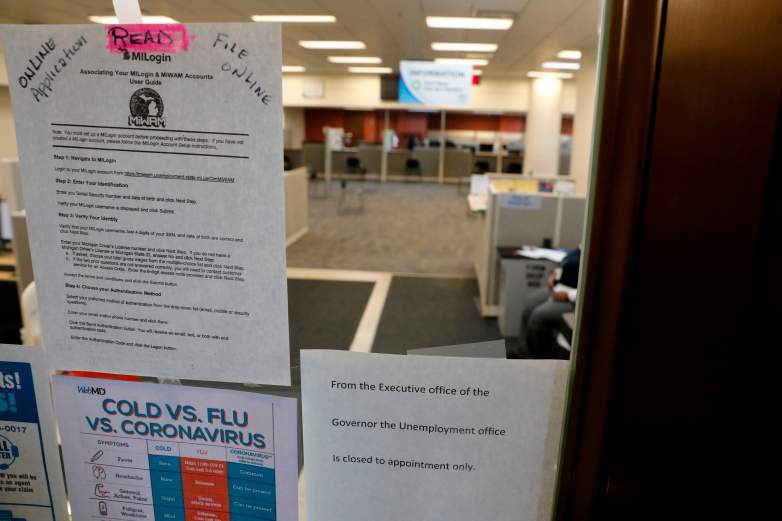
Millions of Americans are awaiting word from Senate Republicans about whether their $600 weekly COVID-19 unemployment benefits will be extended. Republicans are taking it down to the wire as they negotiate extended unemployment benefits as part of a second broader stimulus relief package.
The latest word out of the chamber is that Senate Republicans may be considering a smaller amount than $600 weekly and for a shorter duration of time as a compromise between the Democratic proposal and simply letting the benefits expire.
According to Business Insider, President Donald Trump signaled on July 21 “that Republicans could reduce the enhanced unemployment benefits from $600 to a level that’s roughly 70% of a jobless person’s lost wages.” That would reduce the current $600 weekly extra benefits to $175-200, the publication said, citing an estimate from an Obama administration economist named Ernie Tedeschi.
The Los Angeles Times also reported that the checks might drop in size, writing on July 22, “Recent negotiations suggest lawmakers on both sides are open to extending only a reduced or more restrictive version of the payment.”
The benefits were part of the first COVID-19 relief plan, and they’re in addition to unemployment benefits people can receive from states.
Here’s what you need to know:
Millions of Americans Get the Extra Money But the Senators Are Considering a Lower Amount or Shorter Extension

GettyUnemployment benefits for COVID-19 could be extended.
According to BillyPenn.com, a reduction in the extended benefits would be a big income cut for millions of Americans because “between 32 and 36.4 million U.S. workers are either receiving or waiting for unemployment benefits.”
Senator John Barrasso of Wyoming, a member of Republican leadership, told Business Insider that lawmakers “are discussing whether to extend the unemployment benefits for a shorter amount of time” than the Democrats’ proposed extra six months, and “at a lower number,” the publication reported.
Republicans are concerned that the $600 extra weekly benefits provided people with a disincentive to work.
“We made a mistake when we overpaid on unemployment insurance where now it’s hard for people to come back to work because they’re making more on unemployment than they can working,” House Minority Leader Kevin McCarthy (R-Calif.) said on “Sunday Morning Futures,” according to The Washington Post. “So we’ve got to straighten that out as we move forward.”
“From numerous conversations with people at the White House — they do understand redoing this $600-per-week benefit would be really bad for the economy and really bad in the fall, when you need the recovery,” Stephen Moore, a conservative analyst, told the Post, which quoted White House economic adviser Larry Kudlow as saying Trump wants an amount smaller than $600 that “will create an incentive to work.”
The Post reported that some experts believe $200 or $400 are amounts on the table as Republicans continue to meet this week, but that the $200 figure is more likely.
The Expiration Deadline Is Almost Here

GettyA State of Michigan Unemployment Agency office is seen in Cadillac Place that is currently closed because of coronavirus, COVID-19, in Detroit, Michigan on March 26, 2020.
The deadline is looming.
Here’s how it all works: The Democratic-controlled House extended the benefits in its own relief package for coronavirus. However, the ultimate decision rests in the hands of the Republican-controlled Senate. Whether to extend the benefits – and in what amount – is something that will be negotiated and perhaps included in the second stimulus package, which Republicans began to debate during the week of July 20, 2020.
“These emergency unemployment benefits have been propping up families and propping up the economy now for several months, said Kali Grant, senior policy analyst at the Georgetown Center on Poverty & Inequality, to CNN. “Ending the benefits prematurely will really set back any economic recovery that may have been on the way.”
Technically, the extra benefit (which comes on top of unemployment people receive from states) expires on July 31, but because of the way states process payments, they’re likely to stop going out July 25 for all states but New York, which has a July 26 expiration date, according to CNBC.
Congress returned to session on July 20. The Senate goes into its Senate recess on August 7, so that’s the date by which the plan needs to be approved. The Senate comes back into session on September 8, according to Forbes.
According to The Los Angeles Times, Treasury Secretary Steven T. Mnuchin and Trump administration economic advisor Larry Kudlow have recently indicated that there might be some extension of the benefits.
According to the Post, Mnuchin said on television that the administration wants to make sure extended benefits wouldn’t exceed 100% of the worker’s past wages.
Even if Congress authorizes extended benefits, there could be a gap between the expiration date and benefits kicking in again.
“What’s going to happen is on [July] 25, states will stop paying the $600 and will have to turn that function off in their computer system,” Michele Evermore, senior policy analyst at the National Employment Law Project, told CNBC.
“To get it started back up again, it may take a while to reprogram. I’ve been told that even in states with modernized systems, it could still take weeks.”
Republicans are watching unemployment numbers carefully. According to Forbes, the unemployment numbers released July 16 showed only a small decline from the 1.31 million filed the week before. That’s good news for those hoping for another round of extended unemployment benefits.
According to Time Magazine, some Republicans prefer a “return to work bonus” instead of extended unemployment benefits.
Research from the University of Chicago gave some ammunition to people who oppose the $600 weekly benefit’s extension.
The University of Chicago article found that:
68% of unemployed workers who are eligible for UI will receive benefits which exceed lost earnings. The median replacement rate is 134%, and one out of five eligible unemployed workers will receive benefits at least twice as large as their lost earnings. Thus, the CARES Act actually provides income expansion rather than replacement for most unemployed workers. We also show that there is sizable variation in the effects of the CARES Act across occupations and across states, with important distributional consequences. For example, the median retail worker who is laid-o can collect 142% of their prior wage in UI, while grocery workers are not receiving any automatic pay increases. Janitors working at businesses that remain open do not necessarily receive any hazard pay, while unemployed janitors who worked at businesses that shut down can collect 158% of their prior wages.
READ NEXT: Remembering Summer Taylor, the Seattle Protester Struck by a Car.